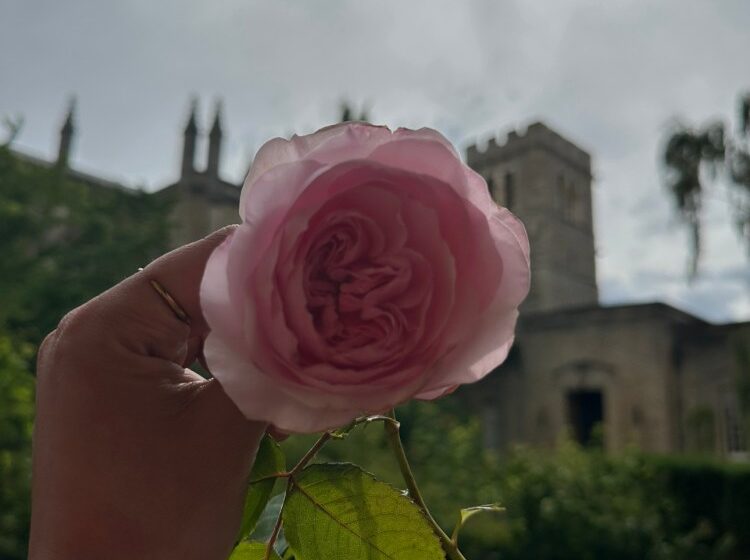
On Discovering New Ways the Heart Can Break
I didn’t know it was possible for my heart to break in the ways that it did when I lost my mom. I spent many confused moments over this past year asking, “What should I do for my mom right now?” Friends would reply, “What would your mom want you to do?” I always knew the answer was to be happy, live in the moment and enjoy life.

Today marks one year since Iman Assad Al-Khatahtbeh passed away. Many people have tried to comfort me by telling me that my mom was surely proud of me. The truth is that the moments when mama was proudest weren’t when I won hard-fought accomplishments. Rather, they were in those intimate and fleeting times that I told her I was grabbing dinner with a friend, or enjoying my travels, or allowing myself to feel joy.
My Palestinian mother was a survivor, a fighter, a faithful warrior, and I know that even in her final moments, she was most concerned about leaving me and my brothers too soon. She hated the thought of not being around to celebrate life’s greatest milestones with us. She already had her dance routine picked out for my wedding one day, even with no groom in sight. And I know that if I could talk to her right now, her only concern for me would be that her passing would plunge me back into depression after years of her wishing for my happiness.

I wasn’t alone in my grief. I didn’t have a full three months to process my family’s loss when a whole generation of Palestinian daughters and sons became forced to endure the experience of losing a mother in far more horrific ways. My mourning became not only for my mother, but for all of our mothers, and our motherland that birthed them. There were some days when my grief felt more like a confession of the selfishness I felt as I despaired over my own mom while so many others were watching theirs be killed.
Every human being will endure the loss of a parent in some form. I begged my friends that have lost a parent to give me the cheat codes for how I’m supposed to survive a whole lifetime without her. The only thing I learned was that there was no manual for grief. Since then, I have been reluctantly reminded that I don’t have to turn farther than my own people for how to endure even the most difficult hardships. It’s a delicate prescription for survival embedded within our souls made up of gratitude, patience, and faith. Iman.

I’m grateful that I was assigned to her, or she was assigned to me. I’m grateful that we survived my teenage years together and that we had enough time to finally call each other friends. In many ways, I’m grateful that her departure shattered the hard shell I formed around myself, that I’ve cried more in the last year than I’ve allowed myself in my entire life put together. I’m grateful that Iman gave birth to me when I entered this world, and that she gave birth to me again when she departed it.
I will always be the daughter of Iman, the ancient word for faith, carried by a woman that lived by her name. Iman is survived by a loving family that will forever carry her otherworldly strength in their hearts. Her proudest accomplishment was raising three courageous children, whose only regret is not having her with them long enough to give her the world like she gave to them. She joins her late parents, the Nakba survivors Nazeeha and Ahmad Assad, in returning to their Creator. Her legacy lives on.



